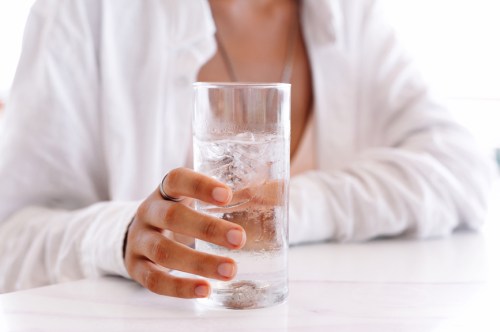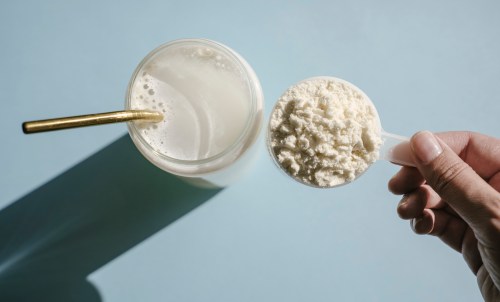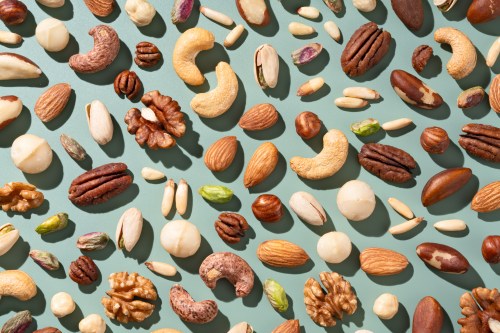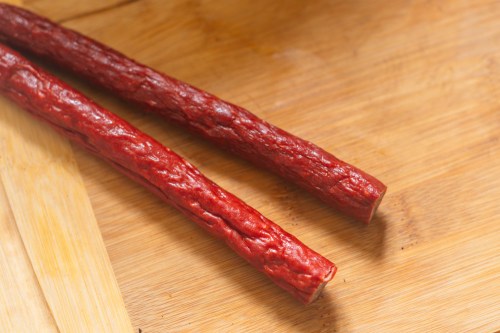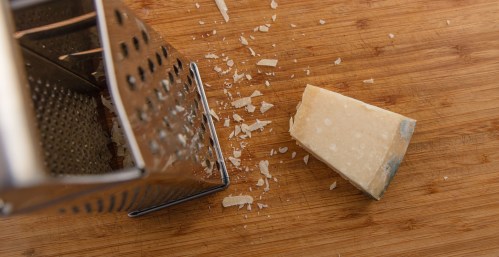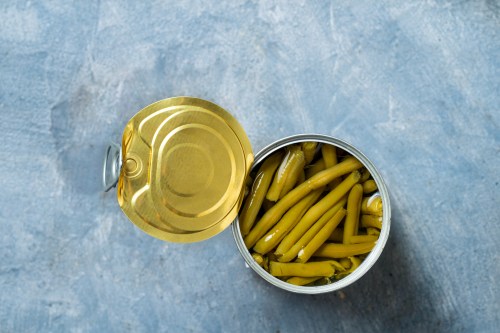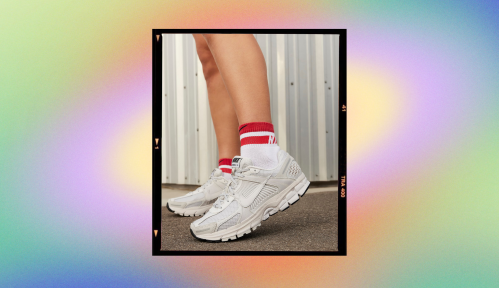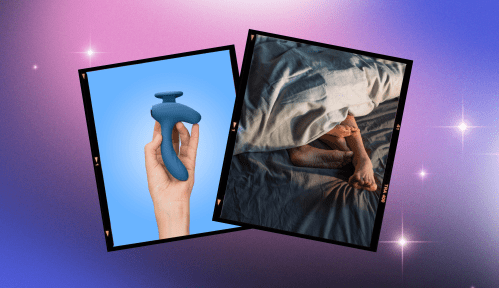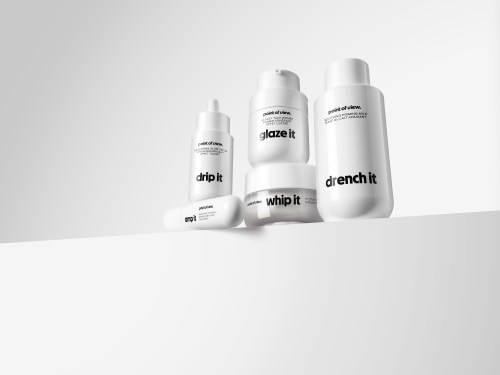POV: You get to the convenience store only to find out that your favorite type of water is out of stock, and all that’s left is the one brand you really don’t like. The devastation alone makes your mouth even more parched.
Experts in This Article
While some may argue that all water tastes the same, that simply isn’t the case for most of us. However, if you consider yourself a water connoisseur and can distinguish one brand from another with ease, a board-certified otolaryngologist says that there’s a scientific reason why water may taste bad to you. In fact, you may actually be a supertaster and not even know it…yet.
What gives water its flavor?
By now, you may be wondering, what does water taste like? And although this may sound like an oxymoron, water does, in fact, have flavor. According to Inna A. Husain, MD, a board-certified otolaryngologist and medical director of laryngology at Community Hospital, water is made up of tons of minerals and inorganic compounds that can give it a distinct taste. “The taste of water comes from the natural minerals dissolved in it—there is calcium, sodium, and phosphorous,” Dr. Husain says.
Although most of these minerals go unnoticed by most water drinkers, studies show that some gifted tasters can actually pick up on the subtle flavor nuances present in the beverage. “For the most part, these are not routinely sensed by taste buds. [However], a 2013 study from Spain involving blind taste testers of bottled and tap water samples found that sulfates, calcium, magnesium, and bicarbonate, if present, most affected taste,” Dr. Husain says. Meaning water can definitely taste like more than just plain ol’ nothing.
What’s more, the study also found that bottled or tap water samples that ranked the best in terms of taste had greater concentrations of bicarbonate, sulfate, calcium, and magnesium with relatively high pH values (meaning more alkaline; less acidic). Meanwhile, samples with higher concentrations of sodium, potassium, and chloride scored the lowest. And although residual chlorine did not affect the ratings in the study in terms of taste preference, it did enable the panelists to distinguish between bottled mineral water and tap water samples.
Of course, Christina Li, a water sommelier based in Canada, can attest to this. For nearly a decade, Li has dedicated her career to uncovering some of the best (tasting) types of water. Through her extensive research and taste testing, Li has determined that natural mineral water is ultimately her drink of choice. But why? According to Li, the minerals in mineral water give it an unparalleled taste and sensation on the palate.
As a water sommelier, Li prioritizes several factors when choosing the best bottled water, including whether or not it’s ethically sourced and if it’s sustainable. However, one of her biggest responsibilities as a professional water taster is sourcing water that simply tastes delicious. Depending on the task at hand, Li will opt for different water choices that serve unique purposes. For example, she’ll find water that tastes good for day-to-day consumption, or, on the other hand, will make water choices depending on which foods it’ll be paired with. Indeed, hydration is a priority, but in Li’s purview, the flavor is equally as important.
How we perceive the way that water tastes
Our taste buds play an important role in determining why we like one type of water more than another. That’s because our taste buds are sensitive to five basic taste qualities: sweet, salty, sour, bitter, and umami (or savory). Of these, research shows that water can activate our sour receptors depending on the sensitivity of our taste buds.
“In 2017, a study from Caltech identified, in lab rats, that drinking water stimulates our ‘sour’ taste receptors. These taste receptors activate different parts of the brain and can influence behaviors, for example, making you want to drink more water or spit it out if it tastes contaminated,” Dr. Husain says.
According to Dr. Husain, it’s also worth taking a closer look at how genetics can be closely intertwined with our perception of taste. “We know that there are genetic differences in our ability to taste related specifically to the ability to identify bitter flavors. Those with sensitivity to bitterness are called ‘supertasters,’ a term coined by Professor Linda Bartoshuk,” she says. But to have this coveted title, it all comes down to having—and being born with—more taste papillae (taste buds) than non-supertasters.
“[Supertasters] are also more sensitive to umami, salty, sweet, and sour. This heightened sensitivity tends to make them more picky eaters as well,” says Dr. Husain. It also explains why some folks might be more sensitive than others to subtle notes of sourness and other elements present in water. “This can impact how we perceive the taste of water; supertasters are theoretically going to be more sensitive to the flavor of the minerals absorbed in the water,” she says.
See? Our taste and affinity toward overpriced bottled water are justifiable after all. Phew.
How can I hydrate without water?
(Plain water, that is.) Despite the tasty water options available on the market, there’s no denying that many folks have a hard time finding the motivation to drink more water. In fact, research estimates that about 75 percent of Americans are chronically dehydrated, which can be particularly alarming since hydration is an essential component for healthy aging and integral to just about every bodily function.
But there are plenty of other ways to stay well hydrated that don’t involve drinking plain water. So, you may be wondering how to make water taste better, and we’ve got a simple solution: electrolytes. When dealing with dehydration, it can quickly result in electrolyte imbalances, which can wreak havoc on the body. As such, you may want to consider supplementing your daily water intake with electrolyte-boosting powders that help up your hydration game without having to sip on plain ol’ water.
Another workaround for staying hydrated (without plain water) is opting for hydrating foods, which chances are you’re eating already. This includes options like watermelon, cucumber, lettuce, tomatoes, strawberries, peaches, cantaloupe, and oranges, to name a few. For context, watermelon is made up of 92 percent water, while cucumbers are 96 percent. Wowza! The best part? These foods also contain a bevy of additional nutrients that plain water doesn’t offer. For example, in addition to watermelon’s high water content, it also contains essential vitamins and nutrients like vitamins C and A, as well as magnesium. Cucumbers, on the other hand, contain gut-healthy fiber that promotes digestion.
But why do I hate drinking water?
Although there’s no substitution for water, drinking plain water can be difficult. Oftentimes, it’s rather boring for our palates or unpleasant, especially when water tastes metallic. Ick. That said, not drinking enough of it will have a negative impact… and your body will make it very clear to you. Insufficient hydration levels can reduce blood flow and oxygen to the brain, which in turn causes inflammation. Additionally, not drinking enough water can cause headaches, brain fog or confusion, fatigue, mood swings, lightheadedness, and dizziness. That’s to say, it’s simply best to find the water that tastes best for you since, ultimately, your body is going to need it to function, and a lot of it, too. Cue: The healthiest sparkling waters.
An RD shares some of the most hydrating foods to really quench your thirst:
Sign Up for Our Daily Newsletter
Get all the latest in wellness, trends, food, fitness, beauty, and more delivered right to your inbox.
Got it, you've been added to our email list.
